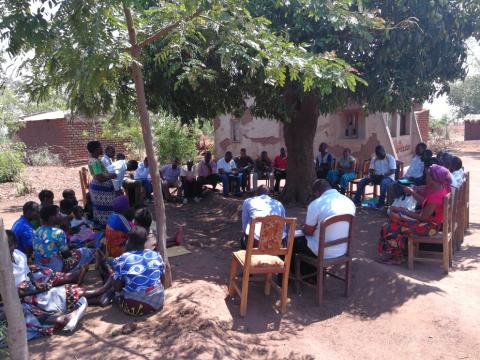Discover hidden stories and unheard voices on land governance issues from around the world. This is where the Land Portal community shares activities, experiences, challenges and successes.
 Follow our
Follow our
Sustainable Development Goals
Blog Series!
Interested in land corruption?
Follow our Land & Corruption Blog Series
for in-depth perspectives from the experts.
Issues
Geographical focus
(Photo: CC BY-NC-ND 2.0 DEED ILRI)
In many countries men control who gets to use, own, and make decisions about land.
“We used to stay in a corner, quiet. If someone came to take our land or exploit our forests, we did not have the courage to try to stop them.” These words from a woman in Mecoburi, Mozambique reflect how women across the world often feel powerless to defend their rights to land and natural resources. For rural communities, land means everything, from the ability to produce crops for food and income to leveraging financial assets.
The Land Rights Law (LRL), enacted on the 23rd of August 2018, was an impressive feat. It recognizes the land rights of all Liberians, especially rural communities who have historically been subject to mere user rights on their ancestral lands. The LRL protects the rights of communities to their claimed customary areas as their lawful property – “with or without deed”. This provision places an estimated 70% or more of the country under customary ownership.
My name is Silas Siakor and I am the Country Manager at IDH, The Sustainable Trade Initiative in Liberia. I have worked on natural resource governance for the past 20 years - with a focus on land and forest. I am deeply honored to speak at this year’s conference to share some reflections based on the Liberian experience and to send a clarion call to civil society, academia, and private sector to step up and do more to strengthen land governance. The future of our planet depends on it.
Secure land and resource rights are critical for household wellbeing and livelihoods in many developing countries, where land is the principal asset for the rural poor.
Prindex Researcher Joseph Feyertag sets out some key findings from his latest paper 'How perceived tenure security differs between men and women in the MENA region'
It is for good reason that gender is a major theme at this week’s Arab Land Conference. Around just 5% of women own land or property in the region – one of the lowest rates in the world.
2020 was a tough year on many fronts, and land rights were no exception. COVID-19 hindered land rights advocates from doing field research, meeting with government officials, prioritizing policy initiatives, and obtaining funding.
Despite these headwinds, we have seen important advances, and the field continues to grow. Here are eight breakthroughs in 2020 to celebrate:
#1: New laws and policies
This year's Goldman Environmental Prize winner says the battle for land rights in Liberia is just getting underway. Alfred Brownell is the recipient of the 2019 Goldman Environmental Prize and founder of Green Advocates an NGO and academic at Northeastern University School of Law
In September, Liberia passed the long-awaited Land Rights bill into law.
On September 19, Liberian President George Manneh Weah signed into law the Land Rights Bill (LRB), a landmark piece of legislation that recognizes the rights of Indigenous Peoples and local communities to their customary lands and gives customary land the same standing as private land in Liberia.
A CLASSIC RESPONSE from governments and businesses in recent time is not just to characterize legitimate grievances by Indigenous Peoples and local communities as anti- government, anti-development, and anti-investment. They are waging wars against Indigenous Peoples and individuals who are protecting the planet and its people by criminalizing their legitimate grievances and then threatening, arresting, intimidating, and imprisoning those who dare challenge this mode of development.


